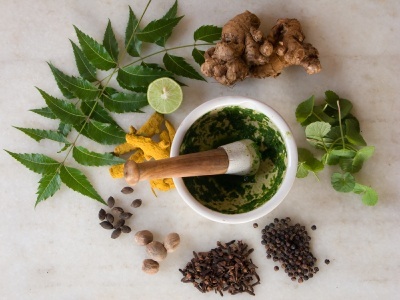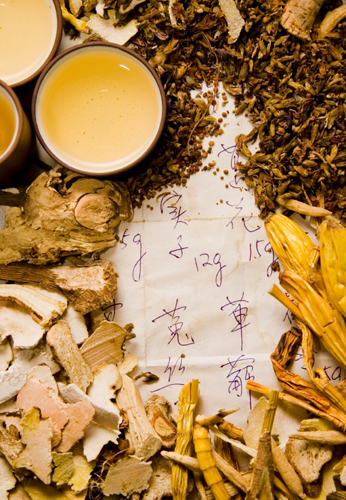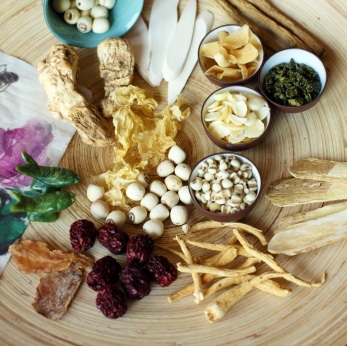Content Sections
ANH challenge to EU threat to traditional herbs
ANH ready to go to court as traditional herbs are threatened by upcoming EU legislation
25th March 2010 Major Developments for Herbal Medicinal Products
22nd March 2010 ANH set to challenge EU herb law
All traditional medicinal cultures are greatly threatened at this point in our history, and it is nigh on impossible to work on all of them simultaneously to protect or promote them.
It's much better, in our view, with limited resources, to focus more specifically on one model system, where benefits from campaign activities can subsequently be felt in all the other traditions. At the ANH we have increasingly become focused on the great Indian healthcare and philosophical system of Ayurveda. We could have—with greater linguistic challenges—also focused on other great traditions, such as Traditional Chinese Medicine. But Ayurveda is more accessible, particularly for us, because so much of the literature associated with it, including the 6-volume Ayurvedic Pharmacopoeia of India, is in the English language. Find out more about our work on Ayurveda, following our 10-day mission to India in December 2008.
.jpg)
The Indian Materia Medica, in Hindi, edited by the great Ayurvedic practitioner Dr GS Pandey, the father of one of ANH's key Ayurvedic collaborators
Check out what's happening in Europe
In Europe, the Human Medicinal Products Directive (amended 2004/27/EC) was originally issued in 1965 (Council Directive 65/65/EC), ostensibly to protect consumers from disasters such as thalidomide. However, ironically, the definition of what constitutes a medicinal product as laid out in the Directive, is so broad that it effectively makes all food products, herbs and nutrients—even water—drugs.
The first limb of the definition of a 'medicinal product' (= drug) (Article 1.2(a)), the presentation limb, is the familiar no-go area for foods, nutritional and herbal products. The limb states that any food that is ‘presented as having properties for treating or preventing disease in human beings’ will be classified a medicine by any European regulator whose attention is drawn to the fact.
The second, so-called functional limb of the definition (Article 1.2(b)), encompasses anything at all that is used ‘with a view to restoring, correcting or modifying physiological functions by exerting a pharmacological, immunological or metabolic action, or to making a medical diagnosis’.
To be regarded as a medicinal product, it is important to recognise that a product need comply with only one, rather than both, limbs of the definition.

Although the base 1965 Directive has endured since that year, there are four main reasons why there is a crucial need now to challenge legally the Directive, and more specifically, recent amendments of it:
First, only in the most recent amendment of the Directive (2004) has the phrase ‘exerting a pharmacological, immunological or metabolic action’ been added, leaving no doubt that any type of physiological effect in the body could be construed as medicinal;
Second, the original, base, 1965 Directive had exclusions in it for food (and toiletries/cosmetics);
Third, although exclusions for such things as foods and cosmetics still exist, they have been transferred to the preamble section (the ‘recitals’) of the amending Directive, where they have no firm legal authority, and;
Fourth—and probably most importantly—the most recent amendment (Article 2.2) now also indicates that ‘in cases of doubt’ and where the definition of a medicine applies even if the product is already covered under other aspects of EU legislation (eg foods), medicinal classification has supremacy.
Although the ANH succeeded in making key amendments (which were accepted by the European Parliament) to this Directive just prior to its second reading, these gains were lost in a last-minute compromise package prior to finalisation of the 2004 amendment (amending Directive 2004/27/EC), which was pushed heavily by the European Commission and the pharmaceutical industry. A sub-Directive of this is the Traditional Herbal Medicinal Products Directive (Directive 2004/24/EC), and this discriminates (acts disproportionately) against herbal medicines from non-European cultures.

Chinese herbal medicines—seriously under threat—along with medicines from Ayurveda, Unani, Tibetan, South-East Asian, Southern African, South American and other non-European traditions
The key limitations of the EU Traditional Herbal Medicinal Product are as follows:
- Discrimination against non-European Herbal Traditionsby requiring at least 15 out of 30 years of usage within the EU, as the basis for proving long established, traditional usage. The basis for this requirement is the supposedly varying pharmavigilance standards in different regions, implying that standards outside of Europe may be lower than those within Europe. This provision seriously disadvantages Ayurveda, Traditional Chinese Medicine, South East Asian, Tibetan, Amazonian and southern African traditions, which are among the longest and most developed botanically-based healthcare traditions worldwide.
- Particular combinations of herbal products may be disallowed. ‘Traditional use’ under the THMPD is based on use of an individual herb or specific combination of herbs. It therefore prevents use of new or innovative combinations that might be supported by emerging science.
- Products are subject to pharmaceutical criteria and GMPs. Under the THMPD, manufacturers must meet pharmaceutical GMPs, including purity and stability criteria that are identical to those used in the case of conventional pharmaceuticals, under the provisions of the same base Directive (2001/83/EC). These criteria cannot be met in the case of many poly-herbal products owing to the complexity of mixtures, the masking of known markers and, in other cases, the lack of standards for identification of markers.
- Traditional medicines are eligible for registration only if they are intended for minor ailments, while traditional medical systems generally have developed to cater for the full range of ailments and diseases encountered in their indigenous environments. Accordingly, the registration scheme may be discriminatory against ethnic minorities within the EU who might wish to benefit from products associated with their traditional medical system. While food supplements are able to be sold legally within the EU containing ingredients that support the health (or reduce the disease risk) of, for example, cardiovascular or neurological systems, these are disallowed under the THMPD scheme.
- Excessive cost of accessing the THMPD regime. The cost of meeting the data requirements for the THMPD, including the assembly of dossiers of bibliographic and expert evidence, as well as the requirements for genotoxicity data (which typically have to be commissioned as existing data are not available) is prohibitive for many SMEs.
- Herbal Products containing significant levels of vitamins and minerals will be prohibitedand allowed only if the action of those nutrients is considered ‘ancillary’ to that of the herbal ingredients.
- Herbal products containing non-herbal ingredients other than vitamins and minerals are currently disallowed. However, the Directive may in the future be amended to allow such ingredients, although verifying their safety to the satisfaction of the HMPC is likely to be challenging and very expensive.
- Increased cost to consumer and restriction of freedom of choice given that significant compliance costswill apply, which will be passed on to the end user, making the cost of products uneconomic for some and limiting their right to make their own health choice.
- Committee control. Authorisations are controlled by the HMPC, which is weighted strongly towards drug pharmacologists/cognosists, as opposed to practicing medical herbalists and others with specific expertise on traditional medical practices.
- Impact on non-European herbal suppliers. Many herbs potentially eligible under the THMPD scheme are produced by small-holder farmers and communities in non-EU countries. If products containing such herbs are disallowed as botanical-containing food supplements, and are also not able to be licenced under the THMPD scheme, these rural communities could be impacted very seriously.
Download the ANH Briefing paper on the EU Traditional Herbal Medicinal Products Directive
Download the joint ANH/Benefyt position paper
Download the abbreviated ANH/Benefyt position paper
Download our A5 flyer warning practitioners of the threat of the THMPD
UK herbalists now threatened by Government inaction over statutory regulation
Herbalists in the UK are understandably deeply concerned about the future of herbal medicine and their ability to access herbal products and to continue practising, especially now that the UK Medicines Act 1968, Section 12(2) is soon to be superseded by EU law, Section 12(1) is also under threat, and the Government is not delivering on statutory regulation (SR). SR is is now seen by many herbalists as the only hope for maintaining supply of herbal products. Chinese medicine, and Ayurvedic sectors rely particularly on traditional formulations made by third-party supply. There are some herbalists, however, who are particularly unhappy about the idea of SR.
How ANH is working to protect traditional medicine and medicinal cultures
- Exposing problems for small to medium sized enterprises (SMEs) in complying with the EU Traditional Herbal Medicinal Products Directive
- Working to safeguard the EU food supplements regime as a safe harbour for botanical products
- Helping to bring together representatives from different medicinal cultures so that their common interests can be protected
- Considering the feasibility of a judicial review of the Traditional Herbal Medicinal Products Directive which a) acts disproportionately on smaller suppliers of traditional herbal products, and b) discriminates against non-European herbal traditions. The ANH has sought an initial view from its leading European Law barristers who have indicated from a limited assessment of the evidence that there appear to be reasonable grounds for a legal challenge (judicial review) to the two Directives in question, on the basis of disproportionality, legal uncertainty and, potentially, even cultural discrimination.
- On the 22nd March 2010 ANH announced its intent to challenge the EU herb law
Please make a donation to help us with this time-sensitive work. Should you require further information, please email [email protected].
Related pages
25/01/18 Germany:giving (vitamins) with one hand, taking with the other
17/01/18 The Founder’s Blog: Attenborough, Cox and roadblocks to natural medicine
20/12/17 ANH-Intl Special Report: Vitamin B6 - “It’s the Form, stupid”
13/12/17 Is botanical doomsday for food supplements in the EU nigh?
25/10/17 UK NHS clampdown on natural medicine in face of growing public demand
18/10/17 Natural exploitation by Big Pharma
26/07/17 EU e-commerce and freedom of choice campaign launch
19/07/17 European Commission signals crackdown on e-commerce
26/07/17 Australian pro-homeopathy campaign
07/12/16 Taking the spice out of German Christmas
09/11/16 Australia’s tussle with natural health
02/11/16 EU Natural Health Absurdities
21/09/16 Does Cannabis have its place in medicine
20/07/16 Will EFSA remove any road blocks for nutrients in supplements?
11/05/16 ANH-Intl survey initial findings: self-care vs doctor-dictated healthcare
02/03/16 The EU health claims regim
03/02/16 Germany: #BanDrugsNotFoods
27/01/16 Will complementary therapies be sidelined for the terminally ill in the UK
16/12/15 Has South African anti-natural health law been derailed?
14/10/15 How and why we need to change our approach to healthcare
01/10/15 Grace Speed's tale: All set up and nowhere to g0
01/09/15 Second chinese herb product gets green light under EU herbal scheme in UK
29/04/15 ANH-Intl feature: The 'Omics' Revolution: Nature and Nurture
03/06/15 Sweden faces major squeeze on natural products
08/04/15UK government finally reneges on promise to herbalists
11/03/15 ANH-Intl Feature: UK medicines regulator and trade association collaborate in online herbal bust
11/03/15 Underhand herbal food supplement ban by Irish regulator
04/02/15 Hundreds of South African traditional healers back TNHA objections to restrictive medicines Bill
12/11/14 Has 4000-year-old Ayurveda tradition reached maturity in the UK?
25/06/14 Pukka Herbs: demonstrating that ideology and business can be combined
25/06/14 ANH-Intl News Alerts: Week 23, 2014
04/06/14 ANH-Intl Exclusive: EU funds adoption of its draconian natural product laws by South Africa
28/05/14 ANH-Intl News Alerts: Week 22, 2014
07/05/14 UK Herbal Medicines Working Group: Dispensing for tradition?
26/03/14 Herbalists are not the only herb users: What will UK herbal regulation mean for other practitioners?
05/03/14 UK herbalist regulation: Statutory, voluntary or the status quo?
05/02/14 Progress for UK herbal practitioners: Do the best things come to those who wait?
22/01/14 Ayurveda group receives reassurances from UK government
28/08/13 ‘Dangerous’ traditional Chinese medicines reveal failure of EU herbal legislation
10/07/13 EU herbal medicines legislation fails again
08/05/13 Stop the UK government doing a U-turn on herbal medicine promise
17/04/13 ANH-Intl Feature: Lessons to be learned from the milk thistle ‘ban’ in Sweden
27/03/13 Would you buy traditional Chinese medicine from Nestle?
12/12/12 ANH-INTL FEATURE: Ayurveda at a crossroads?
09/10/12 UK medicines regulator explains ‘Echinacea in kids’ warning
12/09/12 ANH-Europe Campaign Feature: UK authorities go after Echinacea for kids
18/07/12 Bye-bye, butterbur
04/07/12 ANH FEATURE: EFSA’s mission creep — new challenges ahead for herbs
23/05/12 European Medicines Agency releases second report on EU herbal Directive
20/04/12 Herbal regulation and the ‘FUD factor’
13/04/12 Red Tape Challenge: your voice will be heard!
30/03/12 First Chinese medicinal herbal product is registered under EU herbal directive
23/03/12 ANH starts data collection for UK medicines regulator’s Red Tape Challenge
16/03/12 ANH FEATURE: From confusion to chaos: the poisoned legacy of the THMPD
02/02/12 Frequently asked questions about quality and regulation of herbal products
20/01/12 EU herbal directive forces predictable price rises and customer discontent
10/01/12 Transparency 1-0 Schwabe. Success for ANH-Leaks
06/01/12 ANH, Asian herbal medicine – and the world’s top science journal
25/11/11 ANH FEATURE: ANH-Leaks again! The invisible campaign to restrict UK herbal products
22/12/11 Traditional medicine offers a “revolution” in Tanzanian healthcare
22/11/11 Prof Williamson update: ANH says please get some sleep
18/11/11 ‘ANH-Leaks’ exposes academic letter and responds openly on EU herb directive
27/09/11 ANH FEATURE PART TWO: Doing the avoidance waltz with the European Commission
16/08/11 New project seeks to clarify EU herbals situation
09/08/11 ANH-Intl Press Release: Whitewash response from EC to Dalli open letter
21/07/11 EU herb law is hurting us — says online retailer
19/07/11 College of Medicine symposium foresees herbal medicine on UK National Health Service
13/07/11 European Medicines Agency reports on progress of EU herbal directive
27/06/11 Nutraingredients brands EU herbal directive 'a protectionist tool'
24/06/11 Open letter to Commissioner Dalli
24/06/11 ANH-Intl Press Release: Campaigners pressurise European Commission over non-European herbal traditions
23/06/11 ANH-Intl news item: European Commission fails to clarify EU herbals issue
16/06/11 EMERGENCY FORUM, BRUSSELS, 21st June: Your chance to question European legislators on herb policy!
14/06/11 ANH-Intl news item: Herbalism under continued fire from UK ‘skeptocracy’
10/06/11 ANH-Intl news item: More anti-alternative medicine propaganda in major publication
02/06/11 ANH/Benefyt herb challenge: more time needed by lawyers
26/05/11 ANH practitioner training: relearning the rules of the game!
01/05/11 ANH-Intl: EU herb ban technically starts today!
20/04/11 ANH-Intl news item: ANH-Intl responds to THMPD disinformation in UK newspaper
13/04/11 ANH-Intl news item: High profile for EU herb law at Natural and Organic Products Europe
06/04/11 ANH-Intl news item:UK Ayurveda community joins movement for THMPD reform
28/03/11 ANH-Intl news item: Together toward a better THMPD!
23/03/11 ANH-Intl Breaking News: free Ayurveda Symposium in London
16/03/11 ANH-Intl news item: Yes, minister? Or not? Contradictions in UK government policy on herbalist statutory regulation
10/03/11 ANH-Intl news item: MEP concerns mount over regulatory threats to natural healthcare
01/03/11 ANH-Intl e-Alert: ANH-Intl e-Alert: First-stage legal challenge fundraising target achieved!
17/01/11 ANH-Intl news item: Mainstream UK media confused over implications of statutory regulation of herbalists
16/02/11 ANH-Intl Feature: 75 days before EU lock-out for non-European herbal traditions
16/02/11 ANH-Intl Press Release: EU herb directive keeps consumers in the dark
16/02/11 ANH-Intl news item: UK herbalists to be statutorily regulated with Health Professions Council
15/02/11 ANH-Intl news item: Frequently asked questions about EU herbal registrations and bans
12/01/11 ANH-Intl news item: Independent fails to correct Professor Ernst's distortions
04/01/11 EU herb law controversy hits the UK front pages
22/12/10 India recognises risks to Ayurveda from Europe
21/12/10 European Commission reneges on assistance to European herbal practitioners
21/12/ 10 Lord Taverne tries to shut down university Chinese medicine courses
03/12/10 ANH and Benefyt clarify confusion about EU herbal campaign
18/11/10 ANH Feature: Ground-breaking CAM Interest Group meeting in European Parliament
17/11/10 MPs pledge support for campaign to save herbal medicine
15/11/10 Chinese medicine interests say EU Herbal Directive discriminates against non-European traditions and needs reform
20/10/10 ANH Press Release: Appeal to European herbal sector
01/09/10 ANH Press Release: Pressure against EU herb laws mount
06/08/10 ANH-Intl Summary: Key challenges to natural methods of healthcare in Europe
May-July 2010 "European Union prepares for full enforcement of traditional herbal medicine regulations" - article written by Lindsay Stafford for Herbalgram. Download pages1 and 2. Downloadpage 3
23/06/10 Protect your rights to natural medicine!
14/06/10 ANH Feature: EU Herb Laws
19/05/10 ANH Press Release: Chinese traditional medicine interests express grave concerns over European legislation
22/03/10 ANH Press Release: ANH set to challenge EU herb law
04/03/10 Oh Dear….Prof Ernst’s research facility faces closure
04/03/10 Traditional herbal medicines in the EU: an update
18/12/09 ANH Press Release:'United we are stronger' - ANH announces merger
03/11/09 UK Conservative MP voices support for herbalists at Westminster demonstration
27/10/09 UK herbalists threatened by Government inaction over statutory regulation
ANH Response to EMEA on stability testing for THMPD
20/01/09 News item - ANH Feature: Focus on Ayurveda – Part 2
20/12/08 ANH Feature: Focus on Ayurveda – Part 1
10/10/07 US HerbalGram article
21/03/04 Stop the EU Health Claims Regulations before it's too late!
10/10/07 Nil By Mouth










